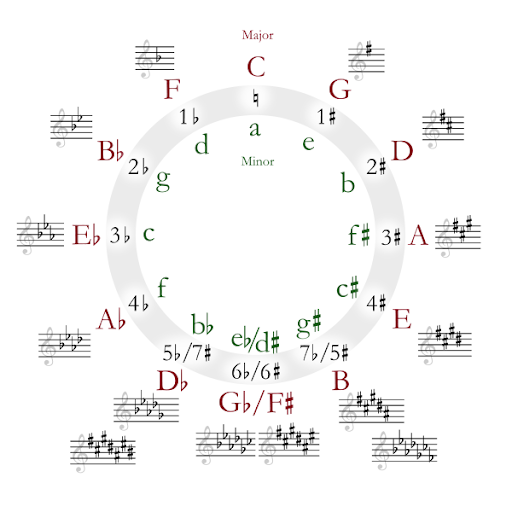
2020-08-03
Scales!
If you have ever studied with me, you know that the very first thing we will do, virtually every lesson, is start with a scale. Scales seem rather boring... just a succession of notes, up and down, with multiple chances to get your fingers tied up along the way. Why start with scales? And then, why go to broken chords immediately?
Well, these humble scales are nothing less than the fundemental building blocks of Western musical theory. That's right... you cannot go two steps in understanding the tonal language of our Western tradition without referencing scales. They are the alphabet, the integers 0 through 9 of our musical system. We should move as soon as possible as students to have mastery of all 12 major and minor scales on our instruments. What about beginners? Well, I start them with "scale fragments", little groups of notes that allow you to pass the thumb under the other fingers at the keyboards. If you begin guitar, violin or flute with me, there are versions of these "entry level" scales for those instruments as well.
Now, many students through the ages have asked what is the point of learning scales. Can't we just go right to playing our pieces, preferably the fun ones? Well, in a little while, yes, we will... but how about we take a little time to use your scales to form the broken chord patterns and primary triads. Armed with these scale based patterns, you can compose simple pieces or improvise them on the spot. Why on earth would you not? We don't learn grammar and syntax in school to just admire them... we write. Likewise, musicians should be original and write and play! And I can assure you that, when I was a kid, we only dreamed of the software and hardware available to all learners today. Marry your digital instrument to your device and start making stuff! All I had at age 7 was my grandmother's antique upright piano, a pencil and music paper.
Musicians share a lot in common with athletes; they are constantly using their bodies to accomplish complex tasks of coordination in real time. Since we are also athletes, we need to respect our bodies like athletes do and warm up and build stamina. Guess what the perfect items for this conditioning are? Yup, scales and the broken chords that come out of them. As my hands get older and stiffer, it becomes more and more important that I "ease" into playing on my instruments but playing the smallest discrete distances (scale steps) until the juices start to flow.
Of course, if you don't mind the theoretical nature of scale systems, they provide a constance source of fascination for the music theory geeks. I am sure you know I am one; my students are very patient with my fascination for scales and the like. Mostly, they would much prefer to just rock out.
We will, however, always play scales, even in small amounts. I insist!
So, again, as you can see, the answer is more complex than one might guess. If you have more questions about this topic, don't hesitate to contact me and we can chat.
K